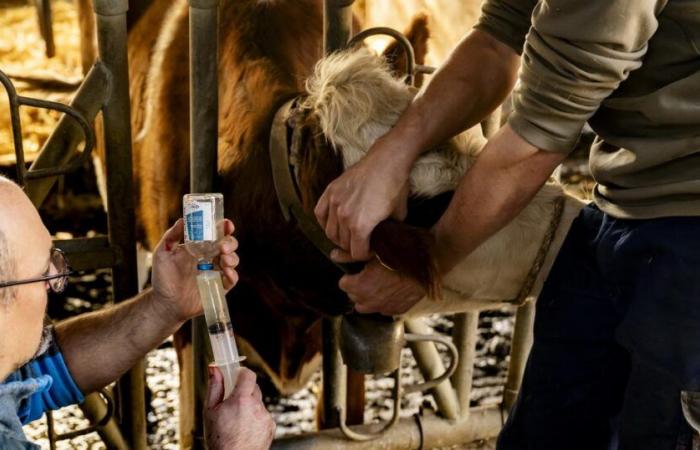Blue tongue disease continues to spread in the Jura. There are now at least 250 farms out of the approximately 1,000 in the canton that are affected and therefore placed under sequestration. This disease has an emotional and financial impact on farmers.
“There are at least 250 farms. There are farms which are not tested or where the virus has not appeared acutely,” explained Grégoire Theubet, Courgenay veterinarian, on Friday.
On October 30, the Minister of Economy and Health Jacques Gerber presented to the Jura Parliament the figure of 240 affected farms and on October 9, the cantonal veterinarian reported 170 affected farms.
Farmers under pressure
These losses are compensated up to 90% of the animal value by the canton’s epizootic fund. But farmers face further losses as measures put in place to limit the spread reduce milk production, sales and trafficking of animals. Added to this are veterinary costs.
Jura breeders would like the vaccine against blue tongue disease serotype 3 (BTV-3), which can be used in Switzerland, to also be covered by the animal disease fund. They have to deal with both an emotional burden with the loss of the animals and additional administrative work.
The mosquito vector of the virus
The disease is transmitted by the bite of small mosquitoes called ceratopogonids. The infection causes, particularly in sheep, serious symptoms, such as fever, inflammation of the mucous membranes and abortions. The mortality rate can reach 70%.
The disease often causes milder symptoms in cattle. The pathogen does not pose a danger to humans.
response
Swiss






